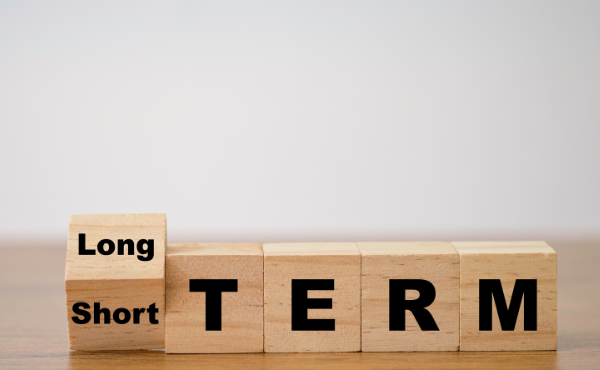
The ECGI blog is kindly supported by

Shareholder payouts and short-termism
From Washington, D.C. to Brussels, there is growing concern about corporate short-termism, with rising levels of shareholder payouts seen as both a symptom and a cause. But this concern is misplaced, as it is based on a misunderstanding of corporate finance and ignorance of the data.
In the United States, leading Democratic politicians have long argued that share repurchases are excessive, draining firms of funds that could otherwise be used for investment and paying higher wages. They point to data that dividends and repurchases by S&P 500 companies routinely exceed 90% of their net income. Between 2012 and 2021, for example, public companies distributed $11 trillion to shareholders, 99% of net income, mostly via repurchases. Last year, President Biden imposed a 1% tax on stock buybacks, and he recently proposed an increase to 4%.
But buyback critics like President Biden ignore equity issuances to shareholders, which move cash in the other direction. Across the market, firms recover from shareholders, directly or indirectly, most of the capital distributed by repurchases. Taking into account equity issuances, net shareholder payouts in public firms during 2012-21 were only about $4.4 trillion, far lower than the $11 trillion gross shareholder payout figure. Professor Charles Wang of Harvard Business School and I calculated that this left public companies with approximately $10 trillion for investment, not counting proceeds from debt financing.
Much of this money, our research shows, is in fact plowed into investment. Overall investment levels, as measured by capital expenditures and R&D, reached historical record highs in six of the last 10 years, totaling $12 trillion during 2012-21. Investment intensity at these firms, measured by the ratio of investment to revenue, has also been rising over the past 10 years and is now near two-decade highs. These patterns are hard to square with corporate short-termism.
At the same time, firms are piling up cash. During 2012-21, cash balances rose by 78%, reaching around $8 trillion and thus leaving firms with ample resources for additional expenditure. There is no evidence that dividends and repurchases are starving firms of capital. If anything, public companies are sitting on too much cash.
Taxing buybacks to address the illusory problem of short-termism in large public companies will impose real harms on the economy. The cash from shareholder payouts by public companies often flows to private ones, such as those backed by venture capital or private equity. These private firms account for half of nonresidential fixed investment, employ almost 70% of U.S. workers, are responsible for nearly half of business profit, and have been important generators of innovation and job growth. Bottling up cash in public companies will reduce the capital flowing to private ventures—and thus their ability to invest, innovate and hire more workers.
Unfortunately, confusion over buybacks and their economic impact is not confined to the United States. In 2020, the European Commission released a sustainable corporate governance report claiming to find a problem of investor-driven short-termism.
As supposed proof of short-termism, the report points to rising levels of gross shareholder payouts — dividends and repurchases — and declining levels of investment. But like much of the policy literature in the United States, the Commission report misunderstands capital flows and ignores or misreports market data.
To begin, the Commission’s report fails to account for equity issuances in measuring capital flows between firms and shareholders. But as Charles Wang and I have shown in a 2021 paper, stock issuances in the EU are substantial, far exceeding repurchases. During 2010-2019, for example, gross shareholder payouts represented 63% of net income. But equity issuances were almost half as large: 27% of net income. Thus, the ratio of net shareholder payouts to net income was 36%, a figure very similar to U.S. public firms.
We also show that both capital expenditures (CAPEX) and research and development (R&D) increased during the period covered by the report, both in absolute terms and relative to revenues (so-called “investment intensity”). Moreover, CAPEX and R&D both increased over the last decade, when shareholder activism has been most intense.
The report implies that investment might be higher had shareholder payouts been lower. But cash balances grew by nearly 40% over the last decade, from €712 to €973 billion. This would suggest that investment by EU public firms is limited by the lack of additional opportunity, not by a lack of available cash. Moreover, even if a particular public firm lacked cash today, the firm could simply issue more equity. That, after all, is why firms go public in the first place. In fact, in each year during the last three decades, smaller EU public firms have absorbed more equity capital from investors than they have distributed: their equity issuances have exceeded dividends plus repurchases.
While EU policymakers have not yet followed their American counterparts in imposing a tax on buybacks, the persistent confusion about capital flows creates an ongoing risk - on both sides of the Atlantic - of more undesirable government intervention around share repurchases.
----------------------------------------------------------
By Jesse M. Fried, the Dane Professor of Law at Harvard Law School.
If you would like to read further articles in the 'Short-Termism in Europe Special Issue' series, click here
The ECGI does not, consistent with its constitutional purpose, have a view or opinion. If you wish to respond to this article, you can submit a blog article or 'letter to the editor' by clicking here.






